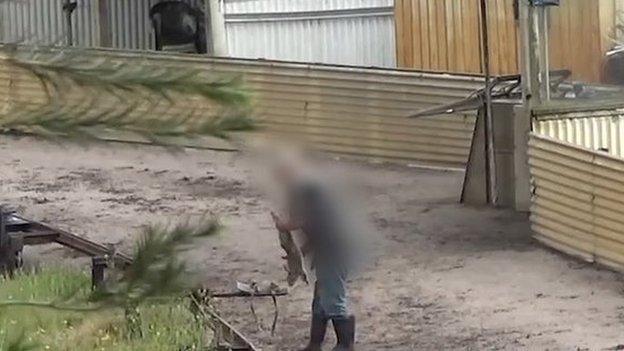Will Australia's greyhound industry be put down?
- Published
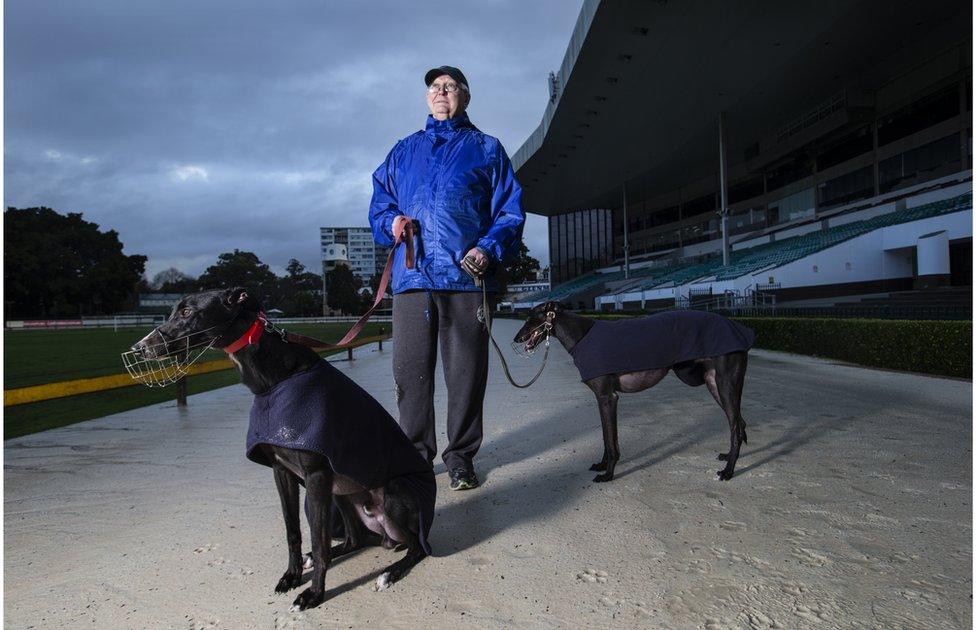
Peter McCann is the last greyhound trainer in Glebe, a gentrified inner-city suburb of Sydney
Australia's most populous state will ban greyhound racing after a report identified widespread abuse of animals. But breeders say politicians are opportunistically destroying their industry, writes Trevor Marshallsea.
Peter McCann is a Sydney anachronism.
Each morning the 66-year-old walks his two dogs, Jimmy and Trigger, through the streets near his home. What makes the scene unusual is that they're racing greyhounds - also known as Gas Metre and Genetic Marlow - and home is the trendy inner-western suburb of Glebe.
The area is best known these days for its coffee shops and vegan eateries, but it is also home to the Wentworth Park dog track. It's a facility that sticks out in its surrounds, dominated by a huge grandstand and sitting on some priceless real estate a five-minute walk from the Sydney business district.
Glebe used to house another famous racing track, Harold Park. It was sold off to developers several years ago to become blocks of flats, while the horse harness racing it hosted headed to the outer suburbs.
McCann is the last greyhound trainer left in the once fiercely working class, now gentrified Glebe. But if the New South Wales government has its way next year, his sport won't be an anachronism. It will cease to exist entirely.
'Decision has been made'
Greyhound racing in Australia's most populous state is set to go the way of bear baiting and cock fighting - a sport deemed by authorities simply too distasteful to continue.
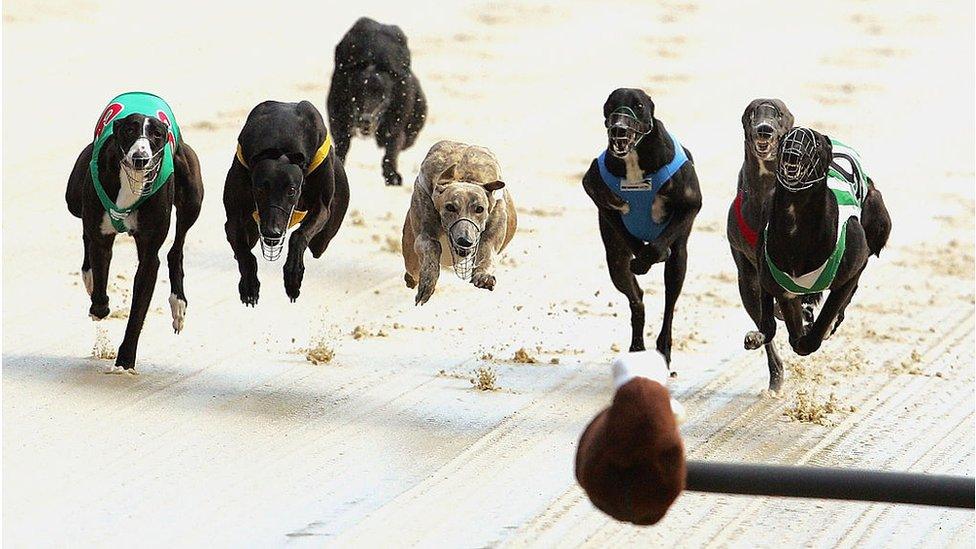
Greyhound racing has for decades been one of Australia's mainstay sports for gamblers
After a damning television report, external into the state of the greyhound industry, a retired judge to lead to a special commission, which released its conclusions in early July. His conclusions were damning.
The report found that up to 20% of trainers engaged in live baiting, training dogs by letting them chase conscious small animals. It said at least half of all greyhounds bred to race - as many as 68,000 over 12 years - were destroyed for being "uncompetitive".
"It is not uncommon… for unwanted greyhounds to be drained of their blood under anaesthetic before being euthanised," the report said. , external
In response, NSW Premier Mike Baird last week announced greyhound racing would be illegal in the state after 1 July next year.
"I feel deep empathy for innocent participants and we will work to support them," Mr Baird wrote on Twitter. "But the report is clear and the right decision has been made."
The announcement has shocked the greyhound industry, and indeed sport fans across Australia. Greyhound racing has for some 80 years been part of the country's gambling trinity, along with thoroughbred racing and harness racing. The industry is now planning legal action.
"It's devastating," McCann says. "I just can't believe the government has done this. Greyhound racing is part of our culture, part of the fabric of Australian society."
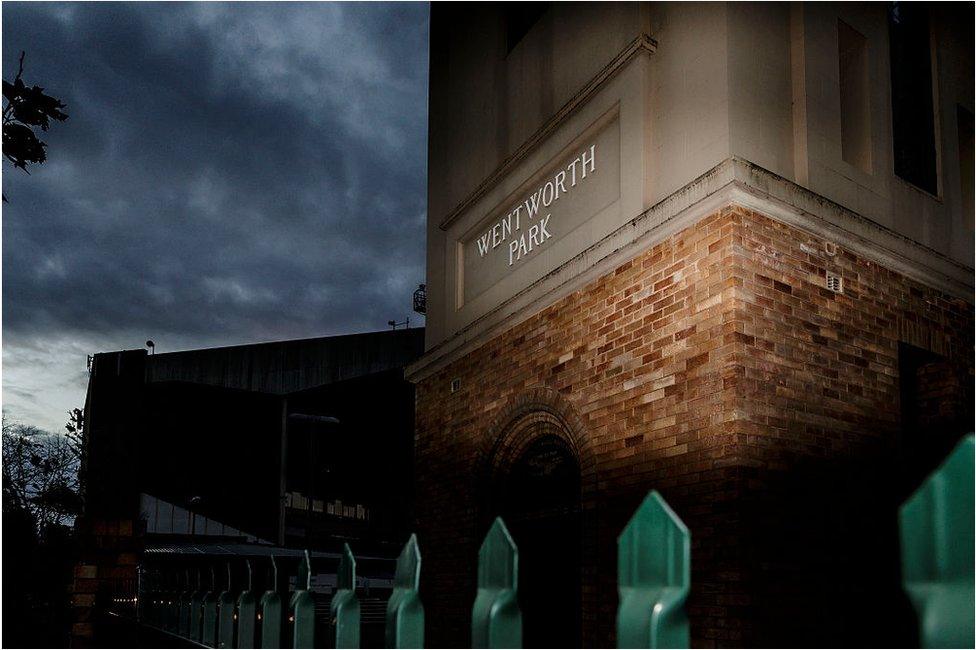
The New South Wales state government has denied that it wants to sell Wentworth Park, a prime inner city location, to developers
McCann remembers when, in the 1950s, Glebe was "a greyhound hub".
"You'd see blokes out walking their greyhounds everywhere around here," he says. "My father trained them, and he taught my older brother, and my brother taught me ... to take the sport away altogether is just unbelievable."
Businesses on the line
At the other end of the spectrum is Paul Wheeler, Australia's biggest greyhound breeder. He runs an expansive property near Young, 370km (229 miles) west of Sydney, which houses 500 greyhounds and had a turnover of A$7m (£4m; $5.3m) last year.
"Our family has run this business for 60 years, but now we'll have to shut down," says Wheeler, who employs 13 workers.
"Governments are supposed to legislate, not decimate. The government says it's sad for the 1,000 people employed in the greyhound industry who'll lose their jobs, but they've massively underestimated the size of the industry."
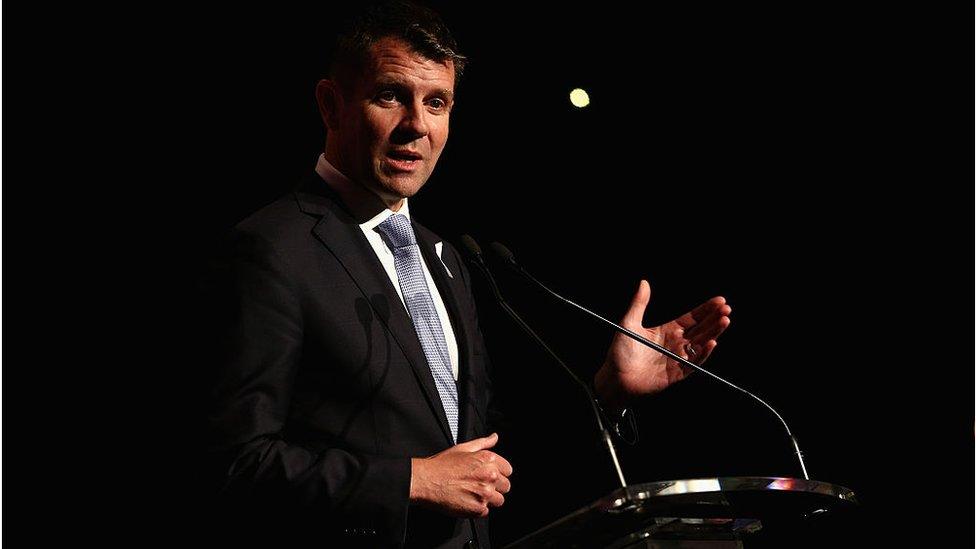
The Premier of New South Wales, Mike Baird, says his decision to ban greyhound racing in the state will not change
While greyhound racing looks set to continue in all other states, shutting it down in NSW, the biggest greyhound-breeding state, will have nationwide ramifications, Wheeler says.
"If we're not allowed to breed dogs in NSW, the other states will pretty soon not have enough dogs to support their racing," he said. "I've had a pet food producer who employs 120 people in rural Victoria contact me - 50% of his business is selling food for greyhounds in NSW. He says he's going to go out of business.
"I've had vets in South Australia who do [fertilisation] implants for us say they're likely have to put staff off. Another lady who runs a greyhound transport business between NSW and South Australia says she'll be in real trouble.
"What's more, the NSW government will ban greyhound racing supposedly for moral reasons, but will still be happy to take taxes through gambling on greyhound racing held in other states through it's TAB [the state government-run betting agency]. It's hypocritical."
Political agendas?
Many trainers believe the Liberal-National government is moving to shore up parliamentary support from minority MPs with animal rights agendas, and that the state government wants to raise revenue by selling off state-owned dog tracks to property developers.
The government strongly denies such accusations and has promised not to sell off any crown land.
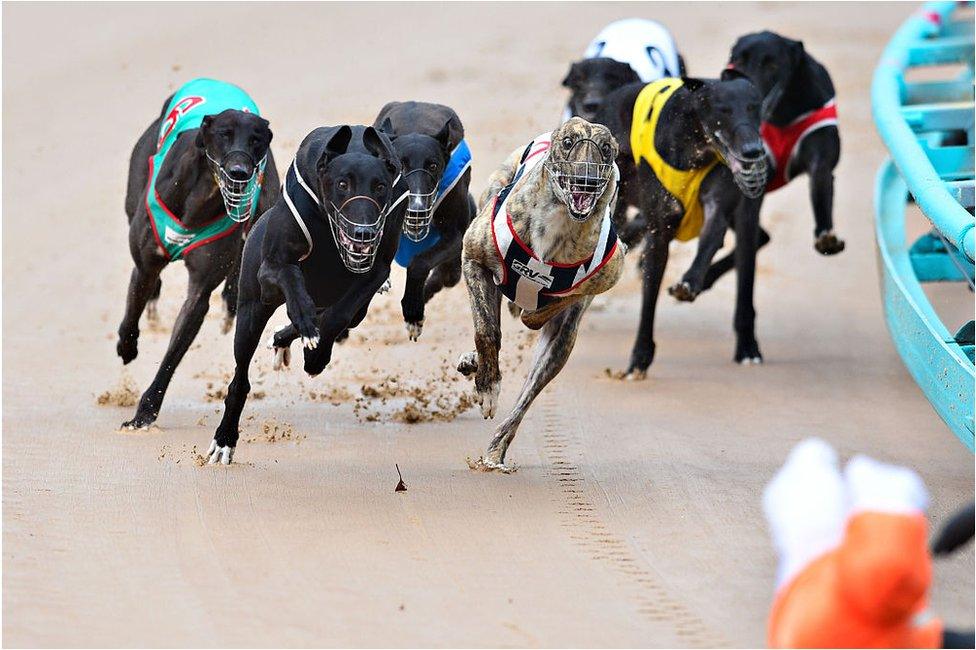
Greyhound racing will end in New South Wales on 1 July 2017 unless the industry can successfully mount a legal challenge
Wheeler says the industry has greatly cleaned up its act in the past 18 months. He said breeding had reduced by approximately 50%, meaning culling had also greatly reduced. Increased random inspections of trainers' properties had also ensured a kennels were up to standard.
Dean Swain, currently second on the Sydney greyhound trainers' premiership, sold up his building business four years ago to pour "thousands of dollars" into his greyhound training establishment in the city's west. His 24 dogs are housed in air conditioned kennels, with music piped through to them throughout the day.
"I'm just in shock," says the 46-year-old father of three. "I watched the Four Corners [television] report and felt like crying. I was embarrassed to tell people I was a greyhound trainer," he says.
"But to tar us all with the same brush is just appalling.
"Financially I'll be ok if I have to wind up. But I've got a friend who's just bought a greyhound rearing and pre-training property for $800,000. He's got three young kids. He came to me in tears.
"Blokes could end up killing themselves. Is a political agenda really worth that much?"
- Published2 April 2015
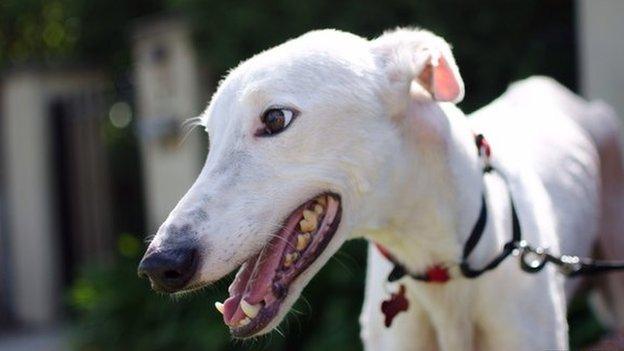
- Published1 June 2015
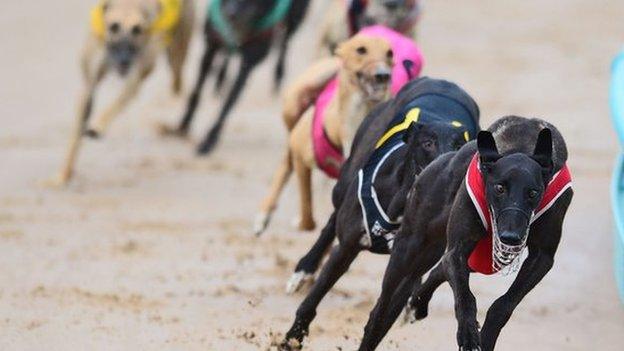
- Published17 February 2015
